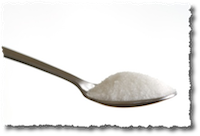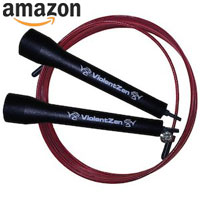Creatine Benefits & Side Effects

Creatine is an amino acid and promotes protein synthesis. It occurs naturally in your body and is also found in meat and fish. (Side note: I think fish is meat, but apparently “meat” is from mammals. haha)
Creatine is also produced by the kidney, pancreas, and liver. Phosphocreatine (which is what creatine is converted into), is converted into Adenosine Triphosphate (ATP), which is used for short duration, high intensity exercise.
Types of Creatine
As far as I know there are basically 5 main types of creatine. I have tried a couple different types but honestly don’t remember what they were because nothing has worked as good as creatine monohydrate for me. Now I only use Creapure® from True Nutrition. (Plus monohydrate has the most scientific data and research).
- Creatine citrate
- Creatine ethyl ester
- Creatine malate
- Creatine monohydrate
- Creatine phosphate
I found several places online that had descriptions of 4-5 different types of creatine, but I cannot validate the information and I’m not trying to write a research paper here.
I have heard if creatine monohydrate does not work for you, one of the other types might work. I’m not recommending any of them, and I am sticking with monohydrate.
Each type of creatine also seems to have different dosing requirements. The dosing information below is generic and does not specify a certain type. (I do give my creatine monohydrate dosing schedule which is fairly normal for most people)
Creatine Dosing
These doses and regimens have been studied in scientific research:
Typically begins with a loading phase of 20 grams per day (or 0.3 grams per kg) for 5 days followed by a maintenance dose of 2 or more grams (0.03 grams per kg) daily, Although 5 day loading is typical, 2 days of loading has also been used.
A loading dose of 9 grams per day for 6 days has also been used. Some sources suggest that, instead of acutely loading, similar results can be obtained with 3 grams per day for 28 days.
I have always done 20g/day for 5 days for loading creatine monohydrate and then 5g/day ongoing. Recently, I read that you really don’t need to “load” creatine monohydrate. The theory is that if you do not load, it will just take longer for your body to reach capacity. Usually I will cycle creatine; 6-8 weeks on, and then take 2-4 weeks off. I have heard that it takes around 2 weeks for your body’s creatine levels to return to normal. However, I have also read that it depends on the amount you’re taking and the length of time you’ve taken it.
Creatine Benefits
- Enhances the body’s capacity to perform high intensity work
- Enhances recovery
- Improves anaerobic capacity
- Enhances brain function
- Increases muscle mass and muscle fiber size; hypertrophy.
- Improves maximal strength and power.
- Improves recovery following endurance activity.
Along with all the benefits for athletes, creatine is also used for treating congestive heart failure (CHF), depression, bipolar disorder, Parkinson’s disease, diseases of the muscles and nerves, and many other ailments.
Creatine Side Effects
I have never had any adverse side effects from creatine. BUT, I always drink a lot of water and anyone I know that has had muscle cramping or any other side effects was not drinking enough water in my opinion.
Creatine is LIKELY SAFE for most people when used at recommended doses. It has been reported to cause stomach pain, nausea, diarrhea, and muscle cramping.
There is some concern that it could harm the kidney, liver, or heart function. However, a connection between high doses and these negative effects has not been proven.
I still have people that think I’m going to kill myself by taking creatine. Like it’s some untested drug that I found on the street corner. It’s probably one of the researched and tested supplements that I take.
Creatine will pull water into your muscles so be sure to drink extra water. Exercising in the heat might cause you to become dehydrated.
Many people who use creatine gain weight. I never gained one pound, and I never got any bigger like many people do. It actually made me more cut. People usually gain weight because creatine causes the muscles to hold water.
There is some concern that combining creatine with caffeine and the herb ephedra (also called Ma Huang) might increase the chance of having serious side effects such as stroke.
There is concern that creatine might cause irregular heartbeat in some people. But more information is needed to know if creatine can cause this problem.
There is concern that creatine might cause a skin condition called pigmented purpuric dermatosis in some people. But more information is needed to know if creatine can cause this problem.
Special Precautions & Warnings:
Pregnancy and breast-feeding: Not enough is known about the use of creatine during pregnancy and breast-feeding. Stay on the safe side and avoid use.
Kidney disease or diabetes: Don’t use creatine if you have kidney disease or a disease such as diabetes that increases your chance of developing kidney disease. There is some concern that creatine might make kidney disease worse.
Basically, even with all of the scientific research, there are only rare occurences of any actual adverse side effects of creatine supplementation. However, I am not a doctor or a scientist and you should always talk to your doctor before taking any supplements.
Other Names: Cr, Creatina, Créatine, Créatine Anhydre, Creatine Anhydrous, Creatine Citrate, Créatine Citrate, Creatine Ethyl Ester, Créatine Ethyl Ester, Creatine Ethyl Ester HCl, Créatine Ethyl Ester HCl, Créatine Kré Alkaline, Creatine Malate, Créatine Malate, Creatine Monohydrate, Créatine Monohydrate, Créatine Monohydratée, Creatine Pyroglutamate, Créatine Pyroglutamate, Creatine Pyruvate, Créatine Pyruvate, Dicreatine Malate, Dicréatine Malate, Di-Creatine Malate, Éthyle Ester de Créatine, Glycine, N-(aminoiminométhyl)-N-Méthyl, Kre-Alkalyn Pyruvate, Malate de Tricréatine, N-amidinosarcosine, N-(aminoiminomethyl)-N Methyl Glycine, Phosphocreatine, Phosphocréatine, Tricreatine HCA, Tricréatine HCA, Tricreatine Malate, Tricréatine Malate
References:
WebMD – Creatine
BodyBuilding.com – Creatine Benefits
University of Maryland Medical Center – Creatine
Comment with Facebook!



{ 0 comments… add one now }